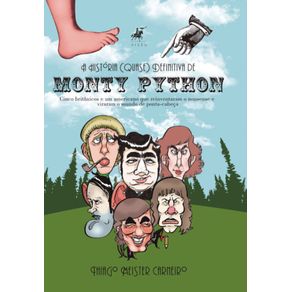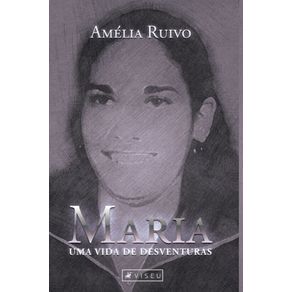| Selo | Self Reliance Press |
|---|---|
| Edição | 0 |
| Idioma | Inglês |
| Autores | C. D. Peterson |
| Acabamento | Capa Comum |
| Quantidade de Páginas | 288 |
| Origem | Literatura Estrangeira |
 Tem minha cor?: Quando se maquiar se torna um ato político
Tem minha cor?: Quando se maquiar se torna um ato político
Telha
R$ 59,00 à vista Dona Flora e a biblioteca Rio-Grandense
Dona Flora e a biblioteca Rio-Grandense
Telha
R$ 45,00 à vista A História (Quase) Definitiva de Monty Python
A História (Quase) Definitiva de Monty Python
Editora Viseu
R$ 89,07 à vista O arquivo pessoal de Heliton Santana como fonte de informação e memória
O arquivo pessoal de Heliton Santana como fonte de informação e memória
Editora Viseu
R$ 62,90 à vista Flagrantes de uma família
Flagrantes de uma família
Editora Viseu
R$ 56,27 à vista Vamireh Chacon Brasileiro e Internacional
Vamireh Chacon Brasileiro e Internacional
Editora Viseu
R$ 35,90 à vista De pai para filho
De pai para filho
Editora Viseu
R$ 51,90 à vista Fim da Crucificação
Fim da Crucificação
Editora Viseu
R$ 36,90 à vista Daniel, o menino que falava com as sombras
Daniel, o menino que falava com as sombras
Editora Viseu
R$ 49,90 à vista Um Câncer Salvou Minha Alma
Um Câncer Salvou Minha Alma
Editora Viseu
R$ 71,51 à vista Um dia de cada vez
Um dia de cada vez
Editora Viseu
R$ 43,90 à vista Uma venda na beira da estrada
Uma venda na beira da estrada
Editora Viseu
R$ 67,35 à vista Infertilidade e acupuntura: O sonho da maternidade realizado na ponta da agulha
Infertilidade e acupuntura: O sonho da maternidade realizado na ponta da agulha
Editora Viseu
R$ 39,90 à vista É Assim que Deus faz
É Assim que Deus faz
Editora Viseu
R$ 46,90 à vista A verdadeira história do fuscão preto
A verdadeira história do fuscão preto
Editora Viseu
R$ 42,90 à vista Sonhos de Paquita: Nos Bastidores do Xou
Sonhos de Paquita: Nos Bastidores do Xou
Consultor Editorial
R$ 60,90 à vista O que o pão me deu
O que o pão me deu
Escreva
R$ 89,90 à vista Dona Flora e a biblioteca Rio-Grandense
Dona Flora e a biblioteca Rio-Grandense
Telha
R$ 45,00 à vista Memórias de um contabilista
Memórias de um contabilista
Editora Viseu
R$ 107,09 ou até 2x sem juros Someone elses houses; A Brazilian’s journal while living in the USA as an Au Pair
Someone elses houses; A Brazilian’s journal while living in the USA as an Au Pair
Editora Viseu
R$ 105,24 ou até 2x sem juros A História (Quase) Definitiva de Monty Python
A História (Quase) Definitiva de Monty Python
Editora Viseu
R$ 89,07 à vista De pai para filho
De pai para filho
Editora Viseu
R$ 51,90 à vista Maria, uma vida de desventuras
Maria, uma vida de desventuras
Editora Viseu
R$ 34,90 à vista Vidas entrelaçadas
Vidas entrelaçadas
Editora Viseu
R$ 29,90 à vista Três fases
Três fases
Editora Viseu
R$ 30,90 à vista Só por ti Jesus; Em uma vida
Só por ti Jesus; Em uma vida
Editora Viseu
R$ 29,90 à vista É Assim que Deus faz
É Assim que Deus faz
Editora Viseu
R$ 46,90 à vista O ontem, o hoje e o depois
O ontem, o hoje e o depois
Editora Viseu
R$ 40,90 à vista A verdadeira história do fuscão preto
A verdadeira história do fuscão preto
Editora Viseu
R$ 42,90 à vista Verde amarelo azul e rosa
Verde amarelo azul e rosa
Editora Viseu
R$ 51,90 à vista Bora Viver
Bora Viver
Bookba
R$ 40,90 à vista CHAMP - a incrível história do baixista Champignon do Charlie Brown Jr
CHAMP - a incrível história do baixista Champignon do Charlie Brown Jr
Ilustre_
R$ 127,90 ou até 2x sem juros Pedro
Pedro
Becalete
R$ 32,90 à vista Passagens de um viajante solitário: Parte 1
Passagens de um viajante solitário: Parte 1
Editora Viseu
R$ 123,26 ou até 2x sem juros Someone elses houses; A Brazilian’s journal while living in the USA as an Au Pair
Someone elses houses; A Brazilian’s journal while living in the USA as an Au Pair
Editora Viseu
R$ 105,24 ou até 2x sem juros A saga de um imigrante alemão: Die legende von einen Deustchen immigrant
A saga de um imigrante alemão: Die legende von einen Deustchen immigrant
Editora Viseu
R$ 91,84 à vista De pai para filho
De pai para filho
Editora Viseu
R$ 51,90 à vista Minha vida em 360º
Minha vida em 360º
Editora Viseu
R$ 28,90 à vista Cavalos pesados
Cavalos pesados
Editora Viseu
R$ 29,90 à vista Vidas entrelaçadas
Vidas entrelaçadas
Editora Viseu
R$ 29,90 à vista Só por ti Jesus; Em uma vida
Só por ti Jesus; Em uma vida
Editora Viseu
R$ 29,90 à vista É Assim que Deus faz
É Assim que Deus faz
Editora Viseu
R$ 46,90 à vista Mães de jogadores, filhos do futebol I
Mães de jogadores, filhos do futebol I
Editora Viseu
R$ 48,90 à vista A vida de um transgênero
A vida de um transgênero
Editora Viseu
R$ 50,32 à vista A verdadeira história do fuscão preto
A verdadeira história do fuscão preto
Editora Viseu
R$ 42,90 à vista